Beautiful Rococo Art
What appeared to be a small white church sitting in the middle of green fields, is an incredible surprise when you enter. I stared in amazement, it was spectacular – like being in a different world! The decorative art form in this church said to represent the art of Rococo in its highest form. It is so beautiful, so much light, color, lavish decorative works of art! Stunning!
The church, oval in shape with high white walls, extensive gold decoration interspersed with magnificent marble gilded alters. Ceiling fresco’s in beautiful clear colors representing religious scenes and symbols, highlighted in gold. The use of stucco and fresco painting joined to perfection in this small church. The ceiling fresco depicts the Resurrected Christ enthroned on the rainbow, to the right Angels, Mary with halo and wings, on the left the twelve Apostles. The amount of Rococo art and decoration contained in such a small space was at once breathtaking and slightly overwhelming.
Clever architecture in the timber construction of the ceiling and roof, and use of a suspended “vault”, plus the use of wonderful perspective in the altar painting by the fresco painters, makes it seem like it has a high vaulted ceiling. The overall impression is that the interior of the church appears larger than it really is.
The Wieskirche lies at the foothills of the Alps. It was built as a pilgrimage church to the “Scourged Saviour in the Wies”. This came about in 1738 when tears appeared on a dilapidated wooden figure of the Scourged Saviour once used for the customary Good Friday processions. The tears considered a miracle, resulted in a small chapel being built to house the statue, however it became obvious very soon that the chapel would be far to small for the number of pilgrims arriving to pray in front of the statue.
Wieskirche and Zimmermann Brothers
The Wieskirche designed in the late 1740’s by the Zimmermann Brothers, Dominikus and Johann Baptist. Dominikus, the architect of this beautiful church remained living nearby for the last eleven years of his life. He was also a stucco and marbling artist as well as an architect. His Brother Johann Baptist a fresco painter and stucco artist created the stucco work and the ceiling fresco. The brothers Zimmermann are among the great artists of the Bavarian rococo era.
The two side altars are similar in appearance only the symbols and dedication is different. The right side altar on the south side dedicated to the “Society of the Scourged Saviour in the Wies”, a society that goes back to the first pilgrimages. Above the altar (white sculpture) the female figure represents Divine Wisdom. The left side altar on the north side is the “Brotherhood of the Poor Souls”. Crowning the north side altar is a figure representing Father Abraham.
Wieskirche Pulpit
The Pulpit is very decorative with flowing forms of gilded stucco, all symbolic and crowned by the eye of God, painted on a mirror framed with golden rays. Directly underneath sits a cherub with the tablets of God’s commandments. Beneath the pulpit is a beautiful cherub riding a fish, also of religious symbolism. Below the cherub, the white figure carrying the Pulpit represents Mother Earth.
Organ Gallery – lavish and beautiful
The Organ Gallery is quite stunning and lavishly decorated with white stucco and gold decoration. The organ loft expanded during refurbishment now highlights the western nave with a lattice grille and the parapet. Above the organ are more symbolic fresco’s which join up with the ceiling fresco. The organ gallery has room for the organ, a choir and orchestra. It would be amazing to sit in this beautiful church and listen to the organ, or listen to all three.
Theologians of Wieskirche
There are impressive life-sized statues of the four great early fathers or theologians of the church. Above Saint Jerome, the others; Saint Gregory, Saint Ambrose and Saint Augustine. The four statues are quite stark in comparison to the lavish nature of the rococo art decoration throughout the Wieskirche.
Wieskirche is without doubt a beautiful rococo church of the period and has a wonderful atmosphere. Beauty within and without. Outside the green fields, forests and beautiful snow-capped mountains of the Bavarian Alps beckon us on-wards. If you are traveling along the romantic road on your way to Neuschwanstein Castle, make sure the Wieskirche is on your ‘ must see’ list. Below a view of the fairy tale castle of Neuschwanstein from the alpine pastures near the Wieskirche.
Can’t wait to visit Neuschwanstein tomorrow….first a night in Fussen….
Related Posts:
- Augsburg Fuggerei village settlement
- Dinkelsbuhl medieval fortifications-medieval city wall
- Rothenburg – a beautiful medieval town
- Romantic Road attractions Germany
- Romantic Road Frankfurt Germany
- Bavaria Germany Wurzburg – along the Romantic Road
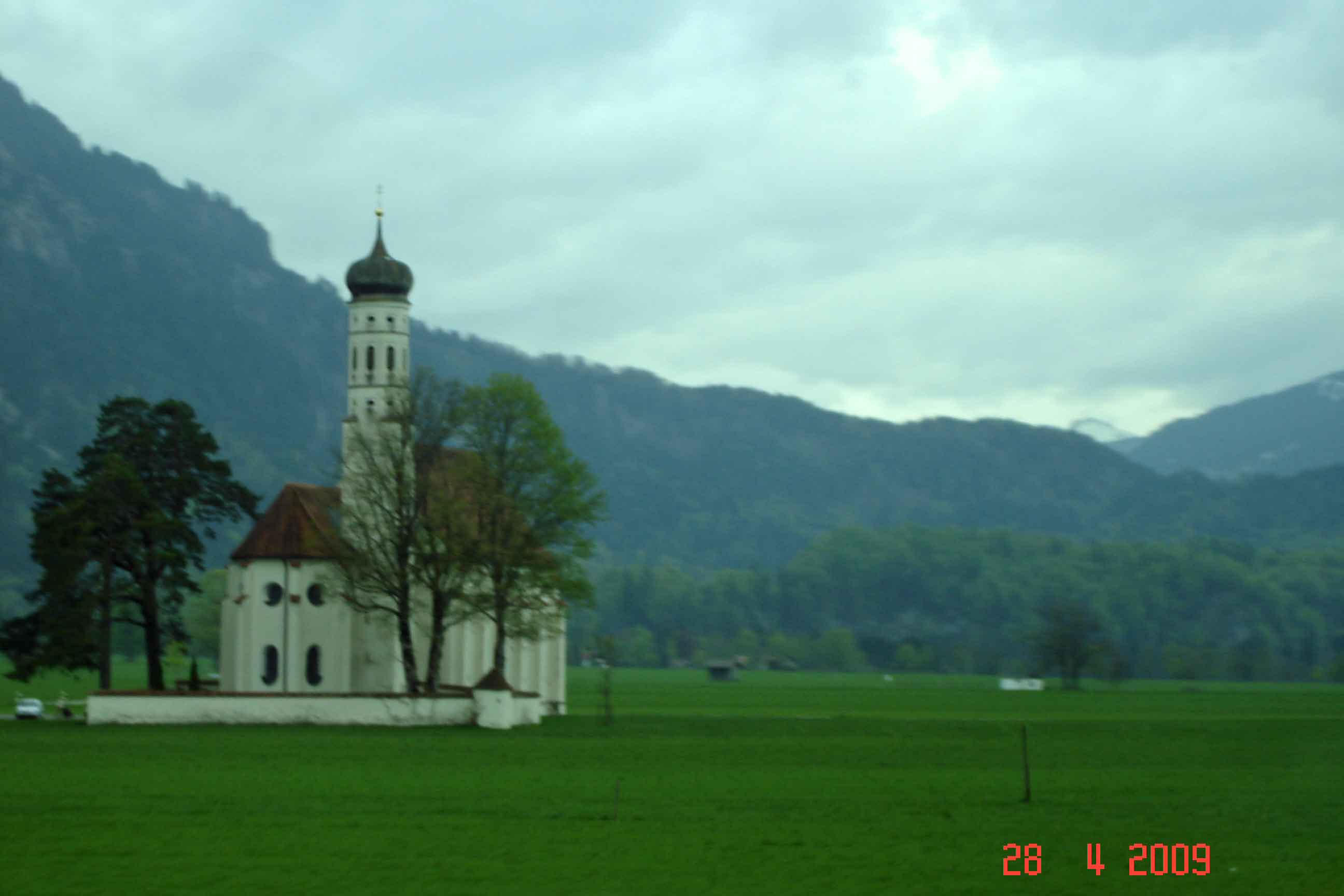
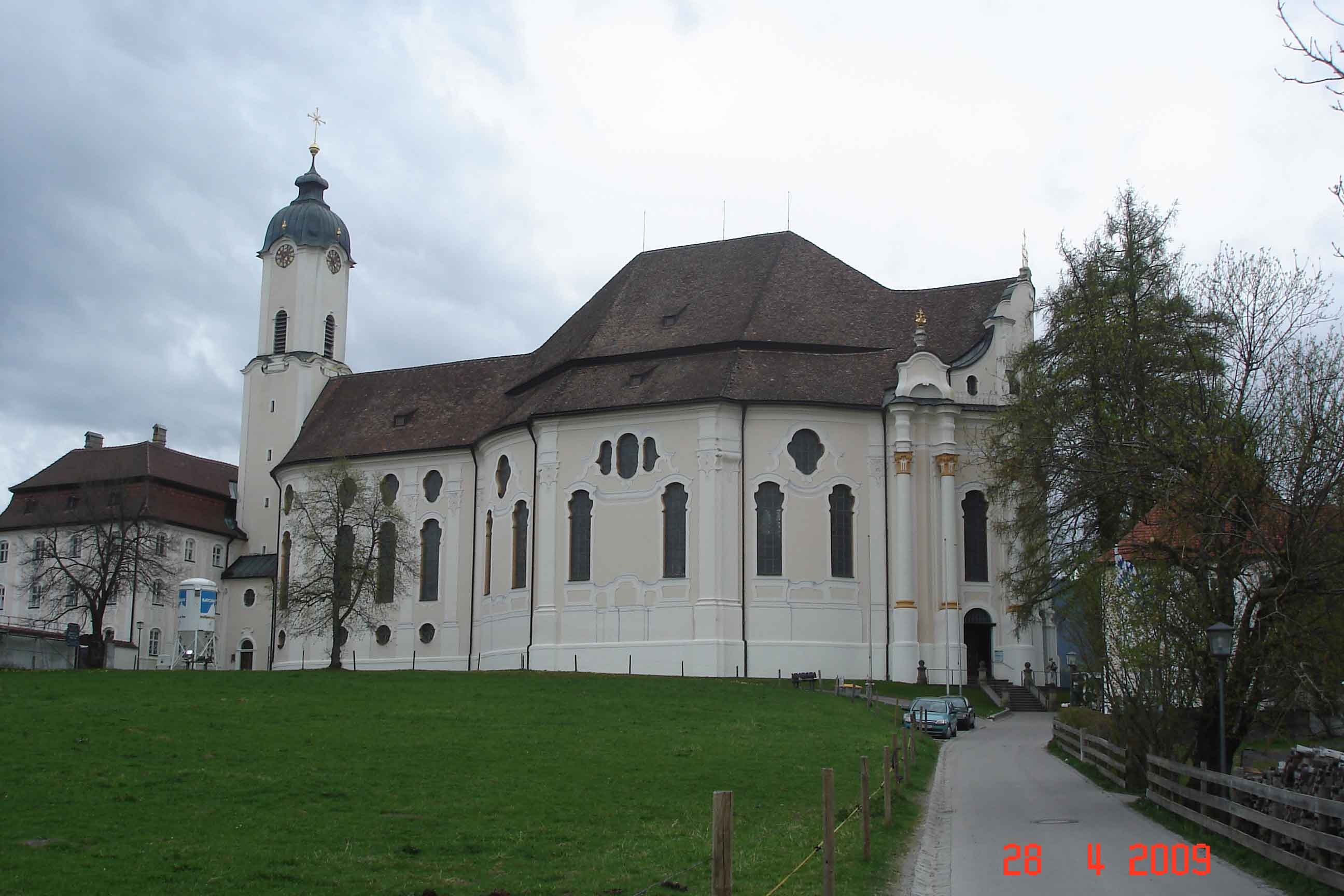
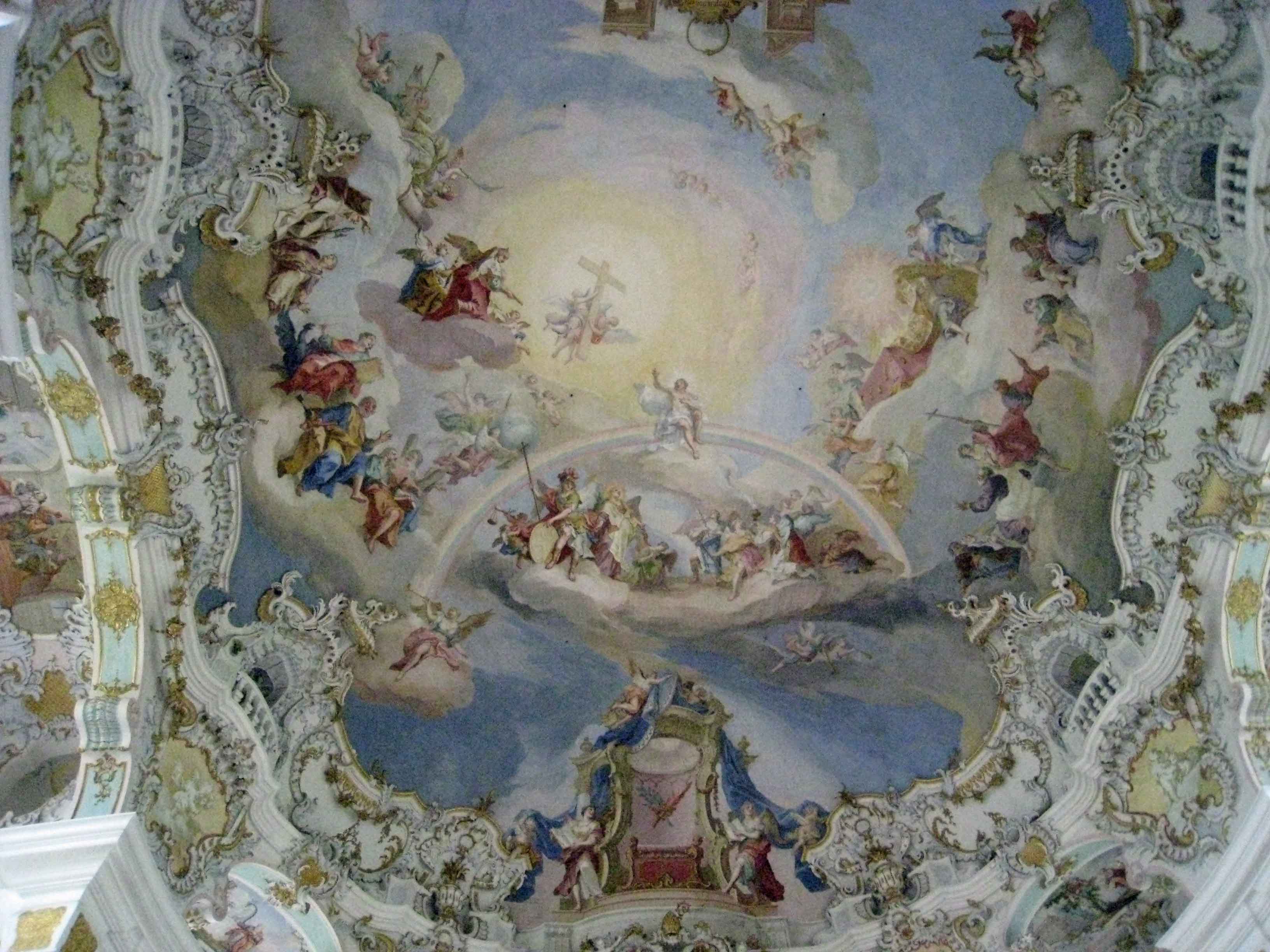
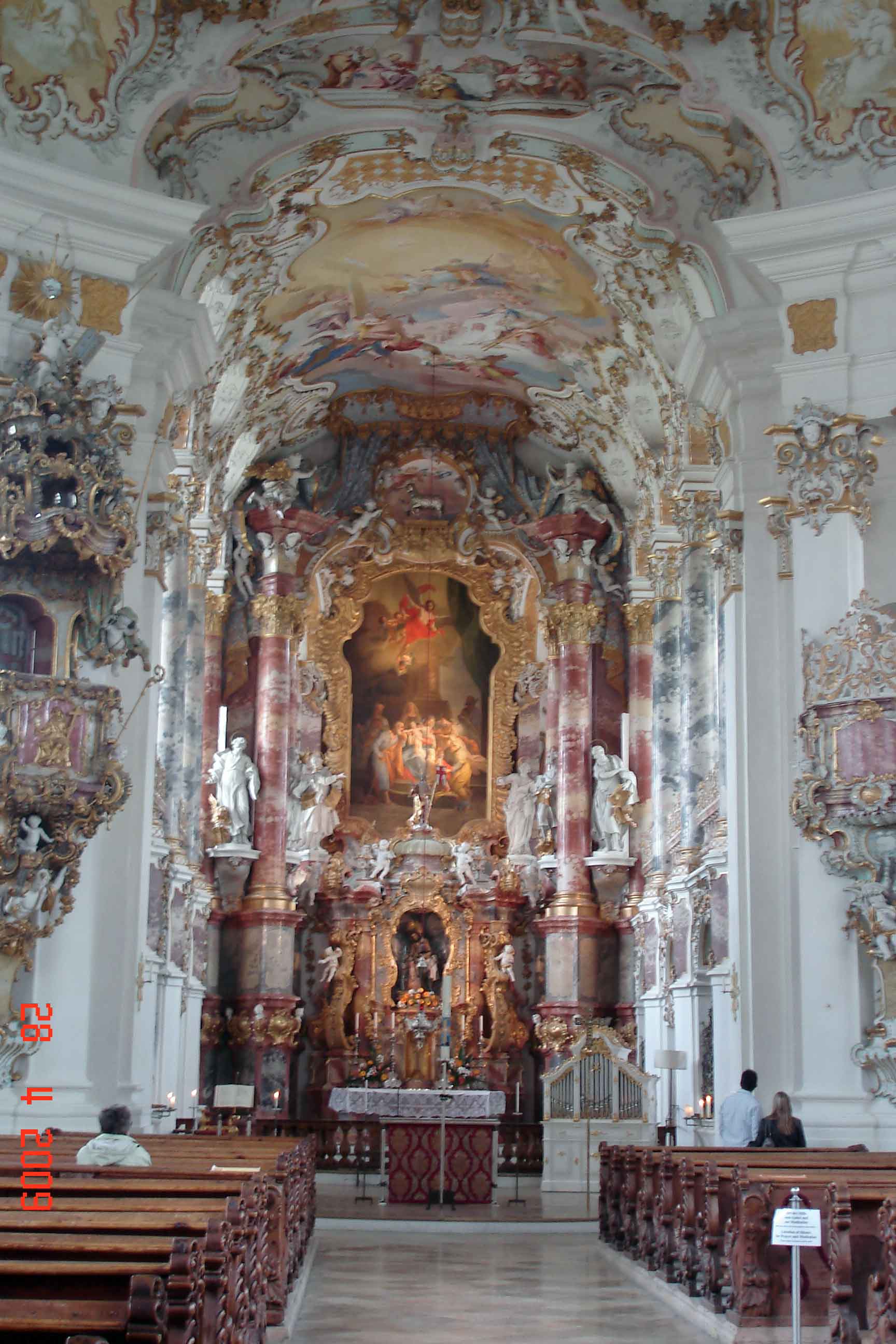
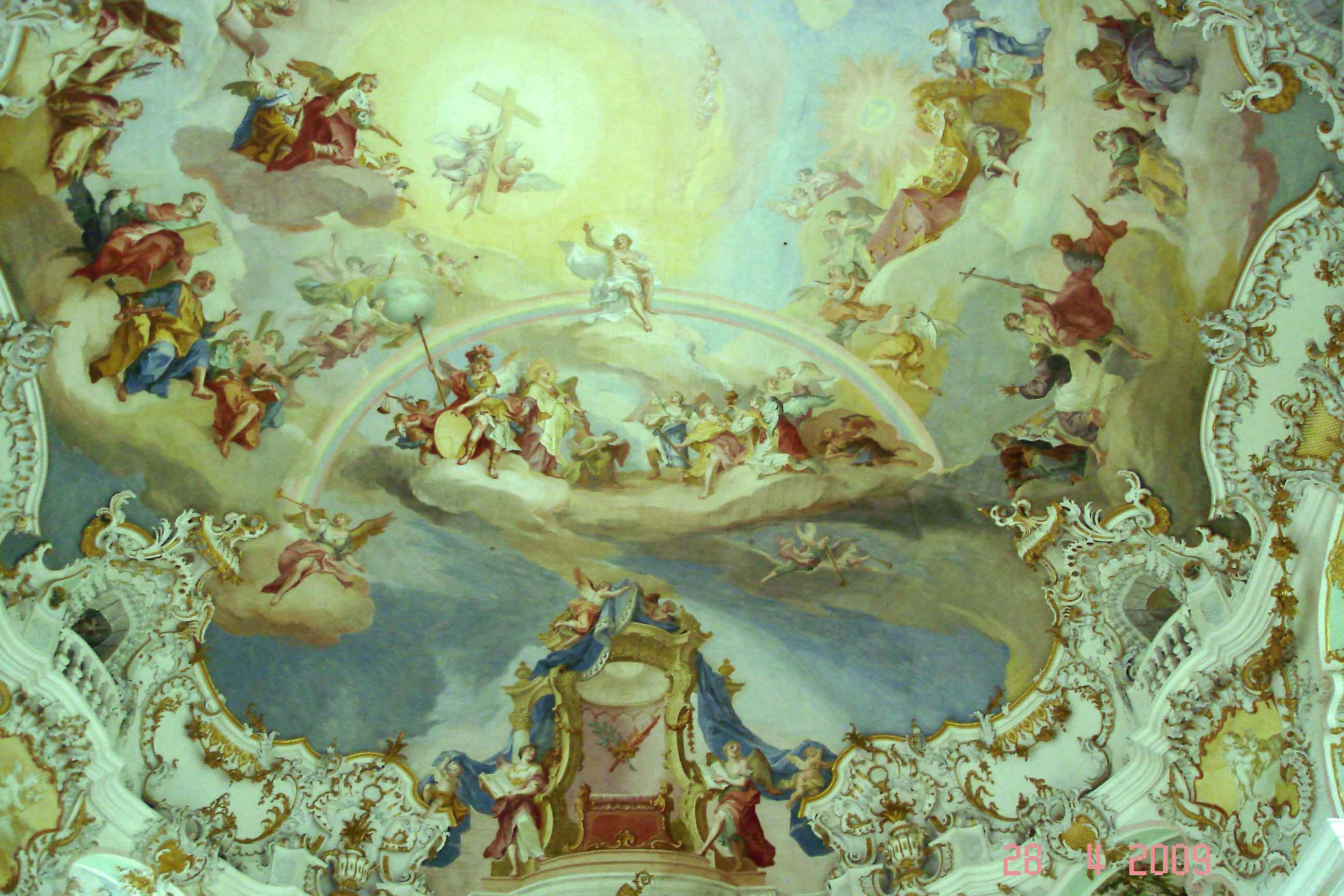
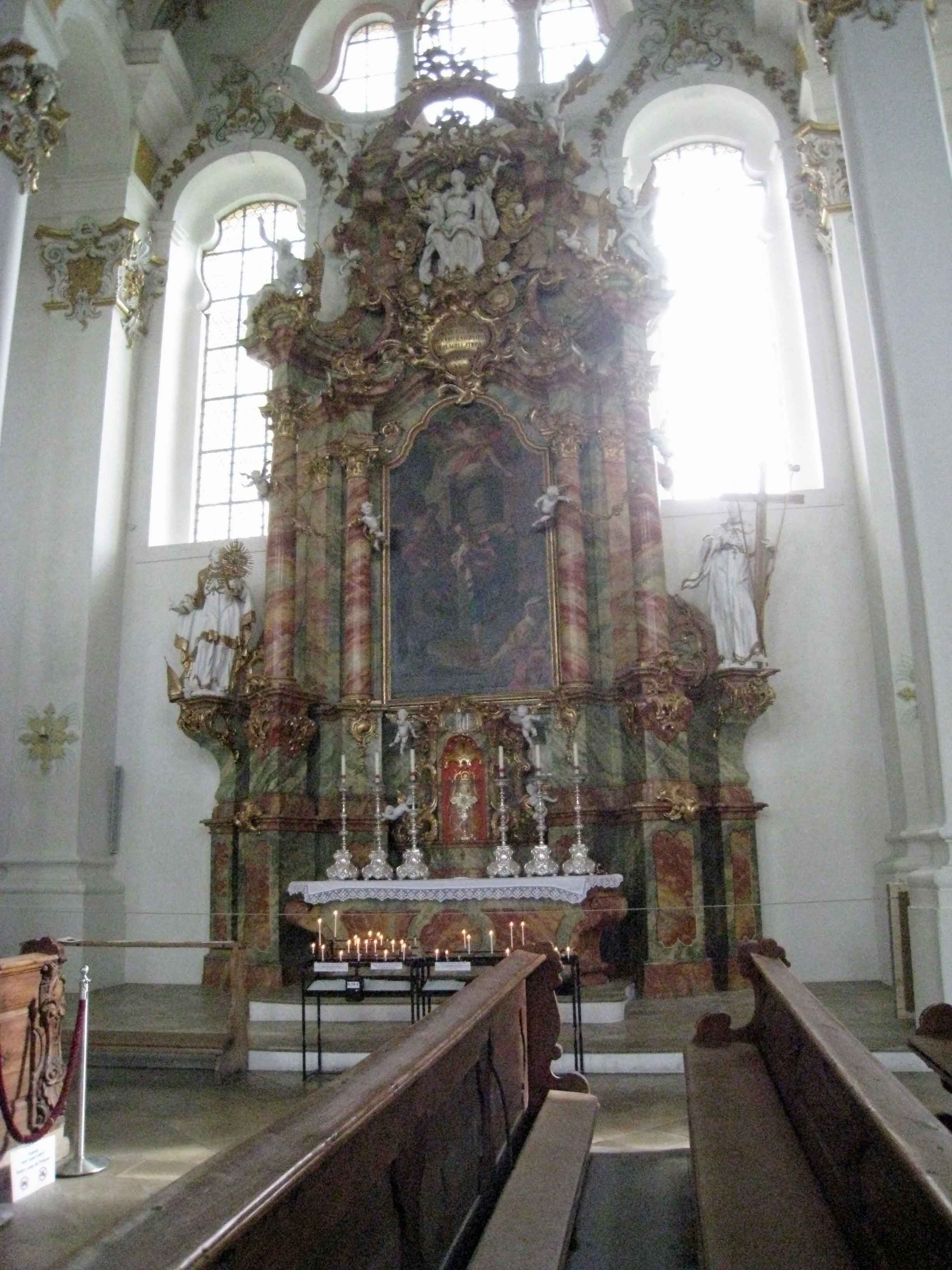
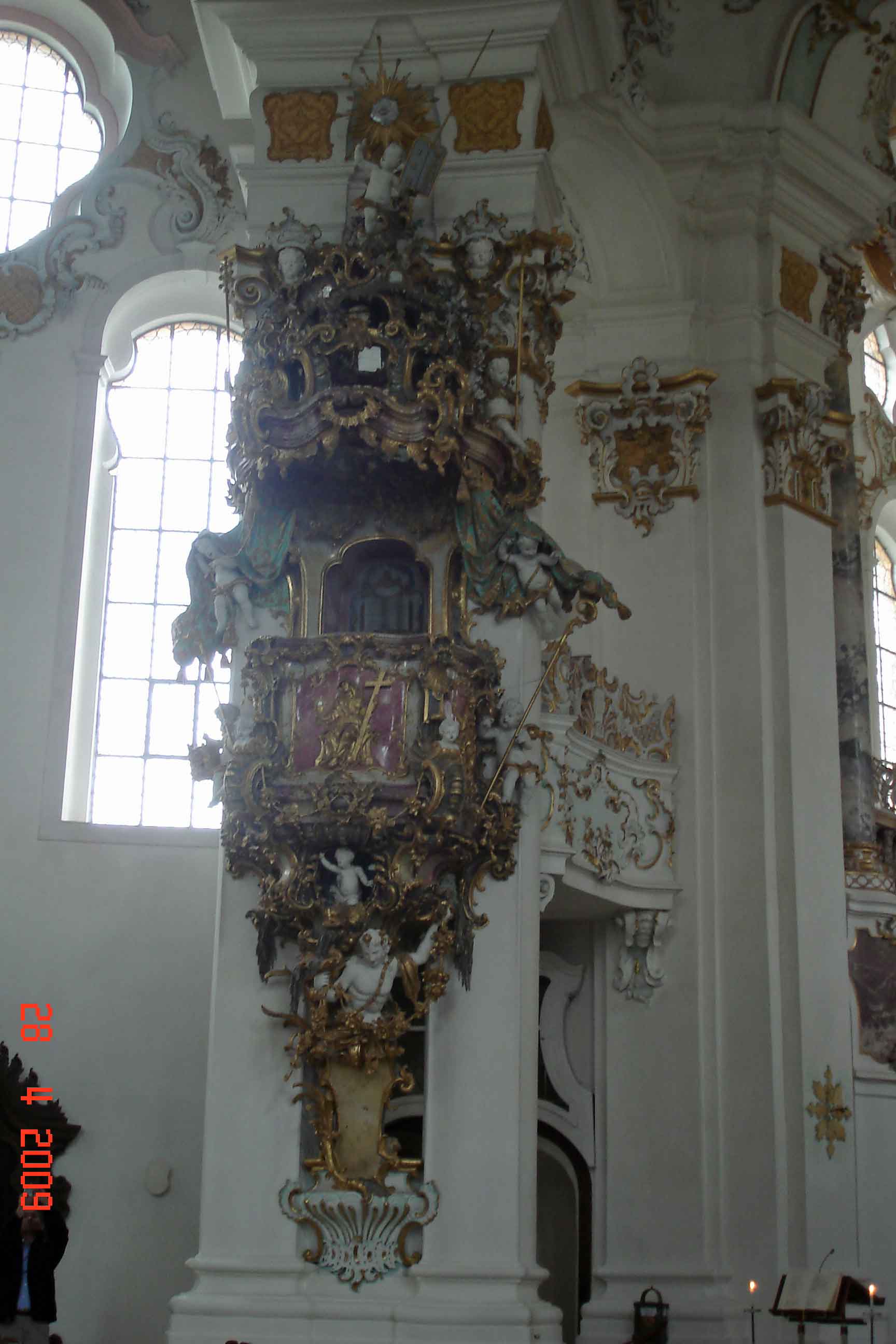
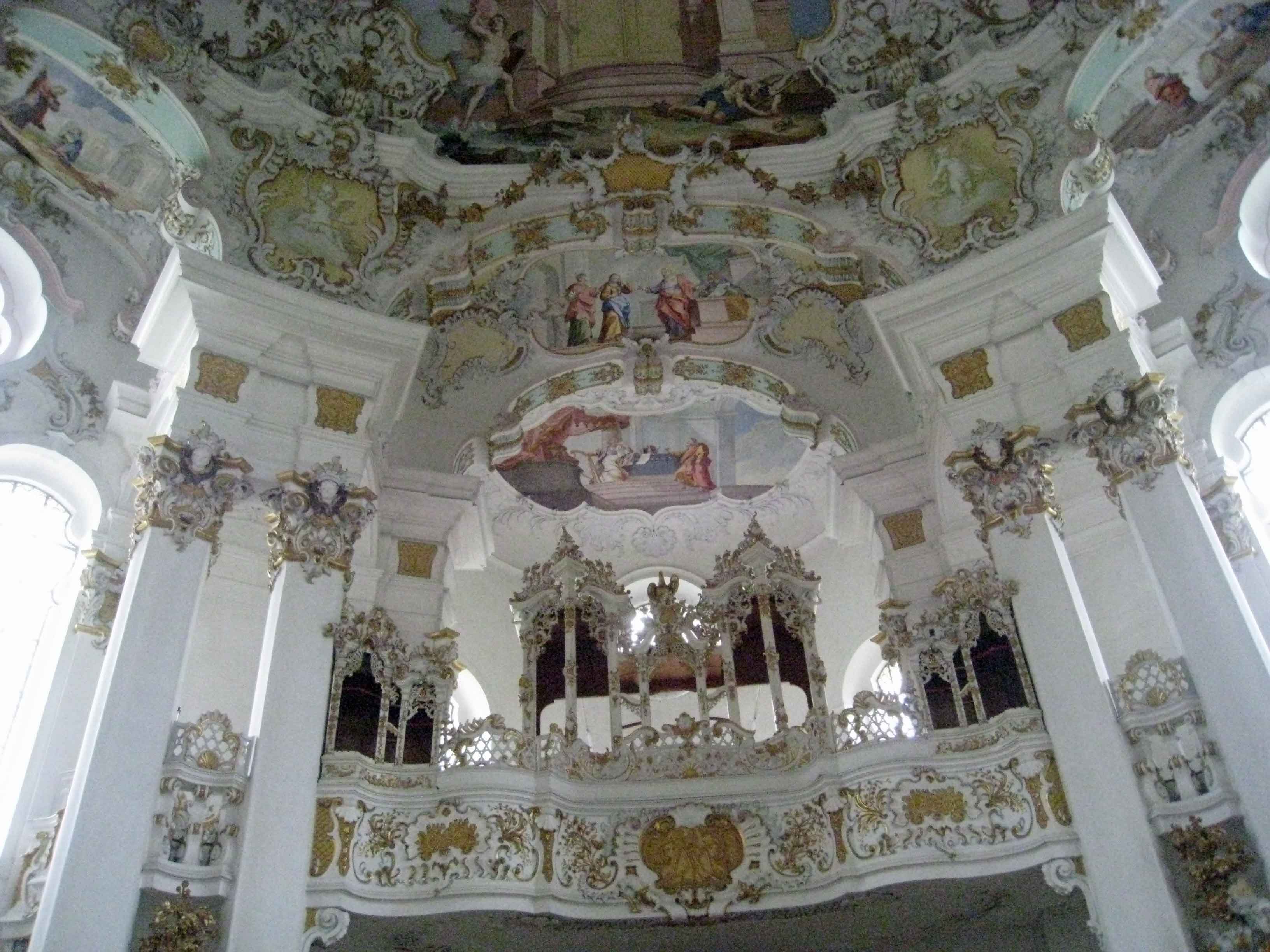
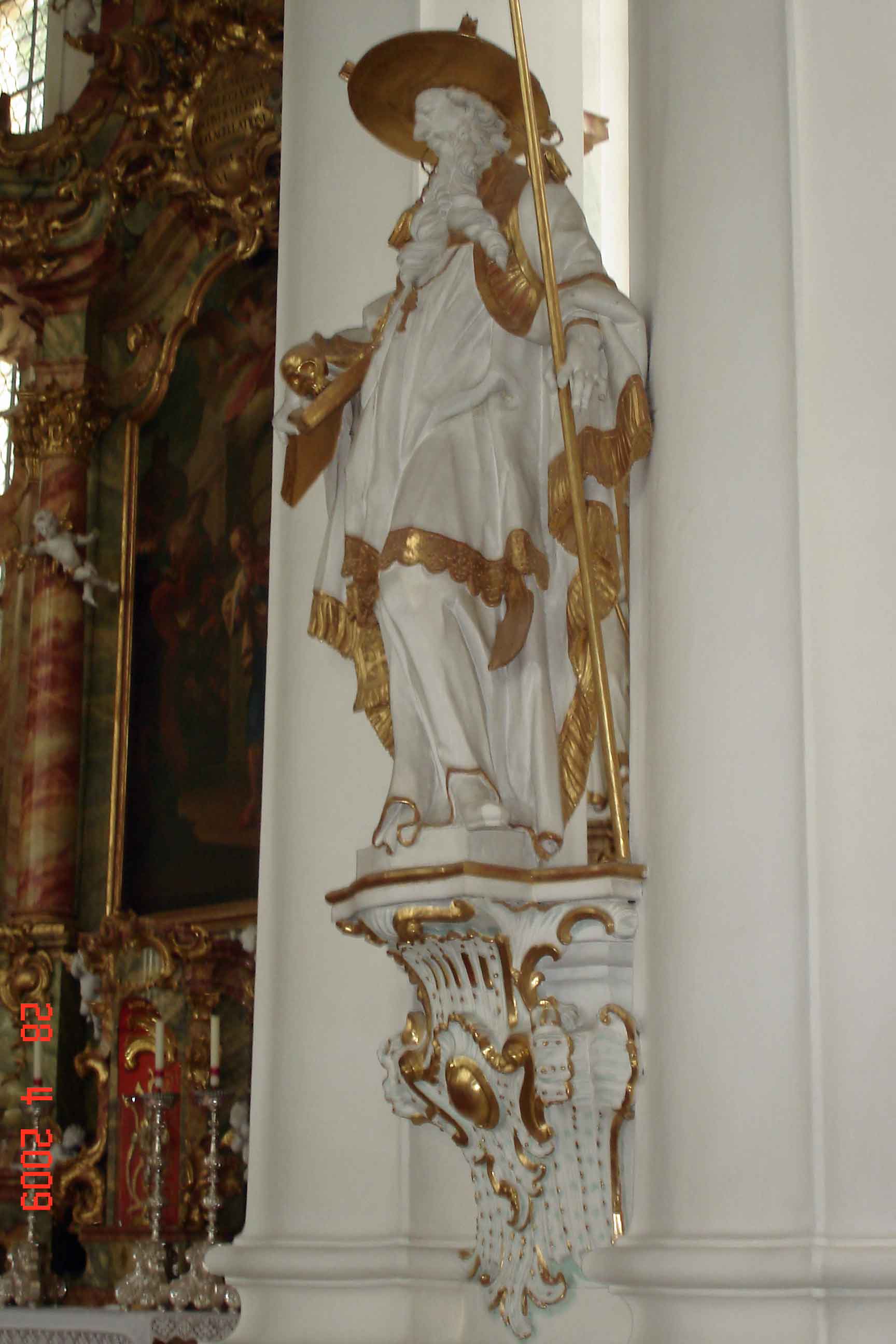
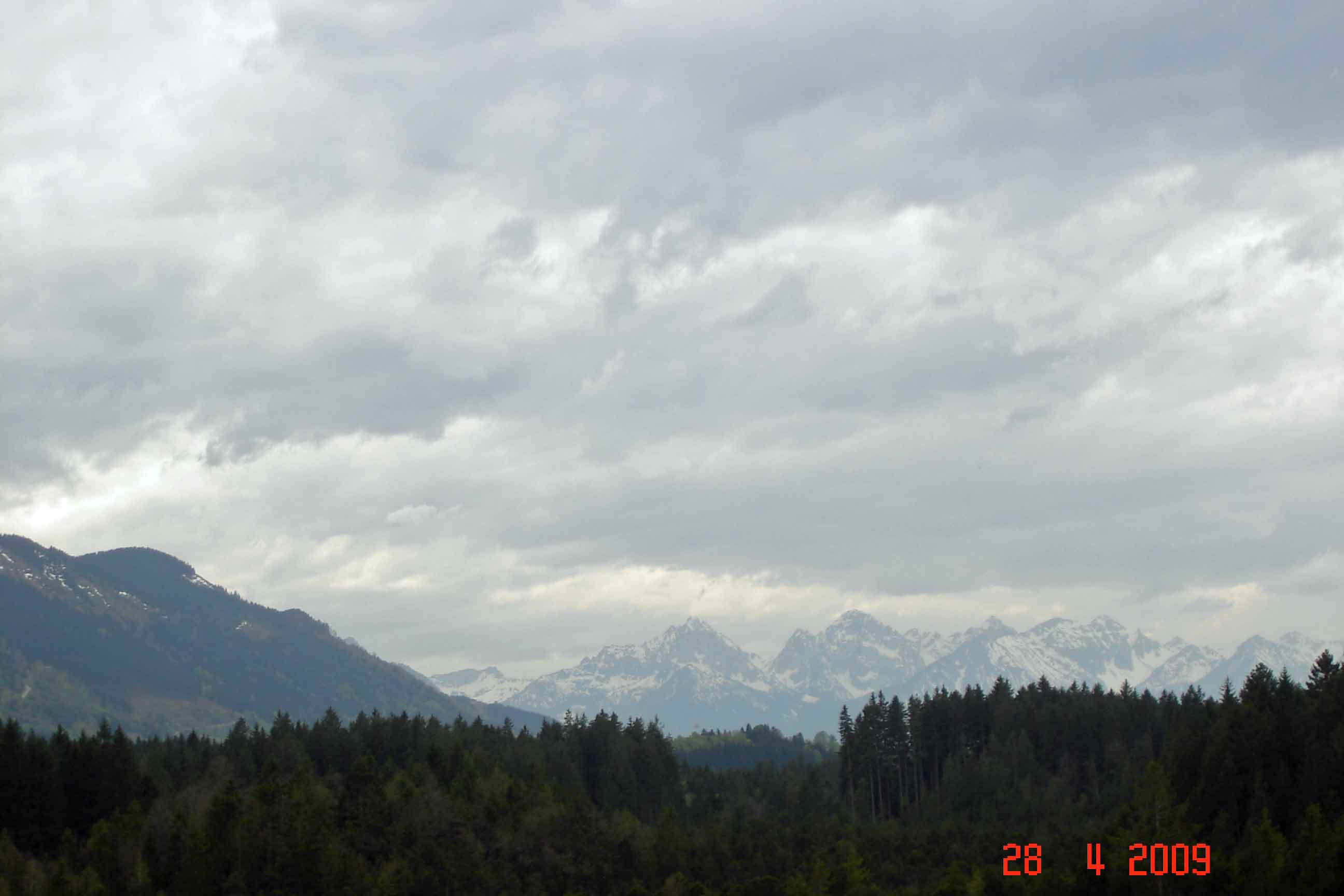
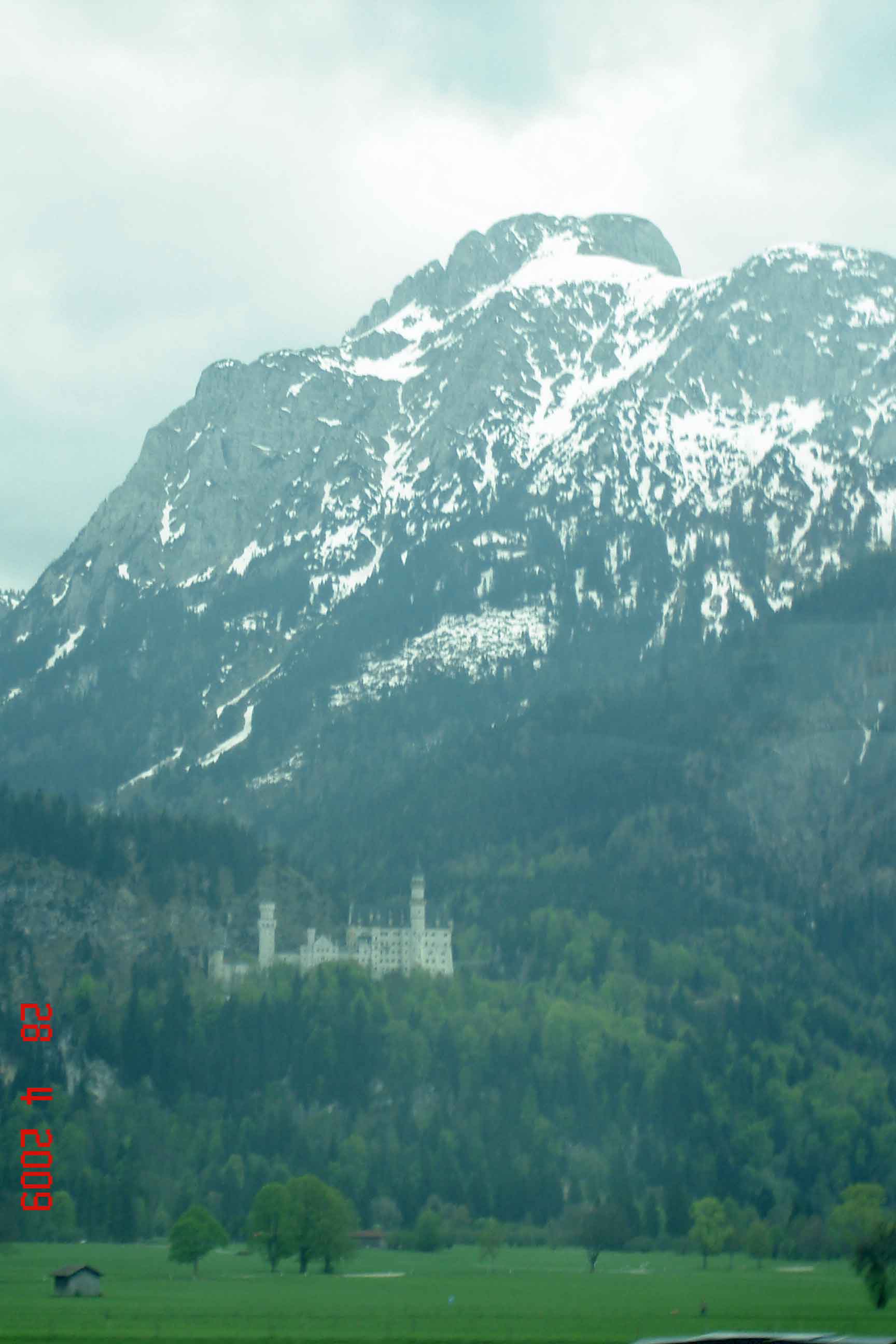
Speak Your Mind